Natively, the Preview app and other editing and preview applications should help you open the JFIF files on Mac. However, there are some scenarios in which these pictures taken in JFIF format can only be opened unless some extension changes are made. In this tutorial I show you step by step how you can solve this problem.
Table of Contents
What are JFIF files?
JFIF (JPEG File Interhange Format) is a standard format for storing digital images, very technically similar to the JPEG format. In fact, many JPEG images are actually JFIF files. The technical difference between the two is minor and does not have a practical importance to the ordinary user. This format was designed to bring an improved alternative, with more header details, a larger range of colors and a better compression than JPEG.
However, the JFIF format had a rather short life. The development of the JPG format over time has almost disappeared. However, there are digital cameras that still make image captures in JFIF format. An advantage of the JFIF is that it keeps information about the resolution and the appearance ratio (ratio) of each image captured by the camera.
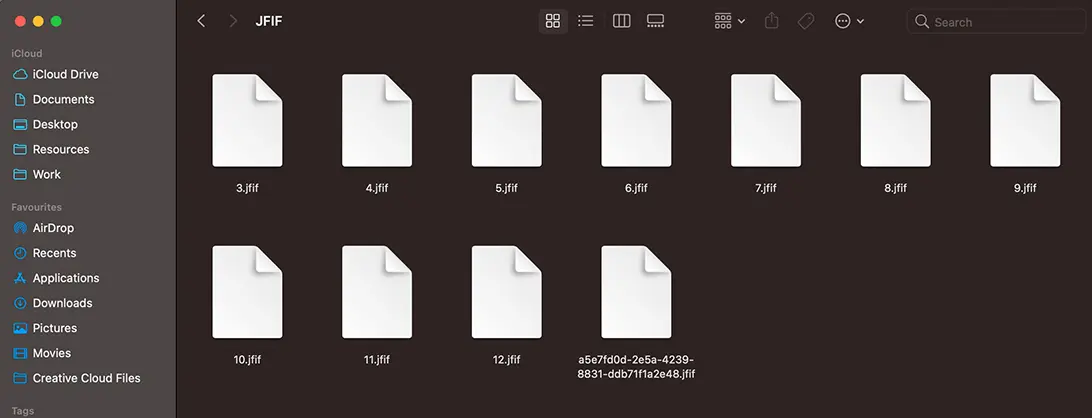
How do you open a JFIF file on Mac?
As I said in the introduction, normally, JFIF files should be able to be opened with any Mac application, which is capable of opening JPEG or JPG files. However, the last days I received an archive with JFIF files that I could not open with the preview application (preview) nor with the Photos application.
The solution chosen by me through which I managed to open the JFIF files on the MAC, was to change their extension from .jfif to .jpg or .jpeg. So if you can't open a JFIF file on Mac, the solution is as follows:
1. Make a backup of JFIF files.
2. Click-right on the file, then click on Rename (Rename) in the context menu.
3. You rename the extension .jfif in .jpg, then press the Enter key.
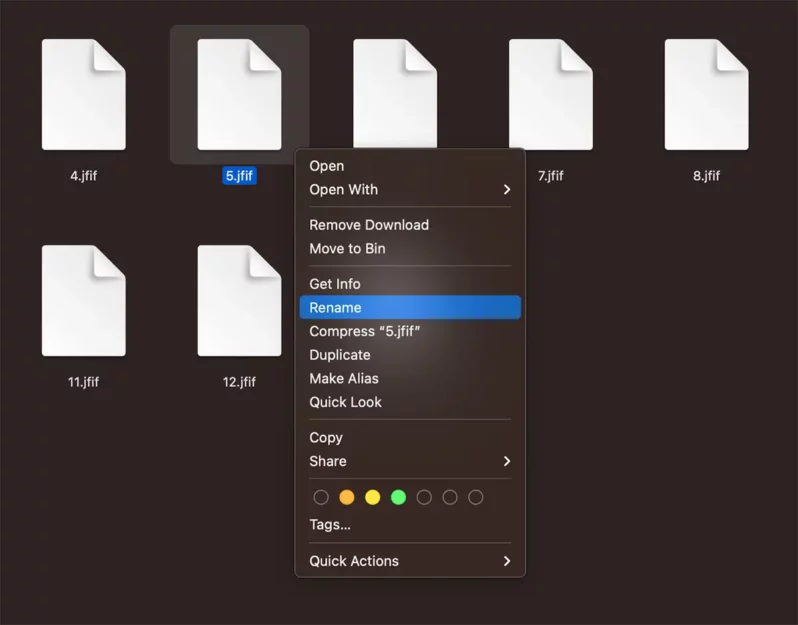
4. In the opening dialog box, click on the "US .JPG" button.
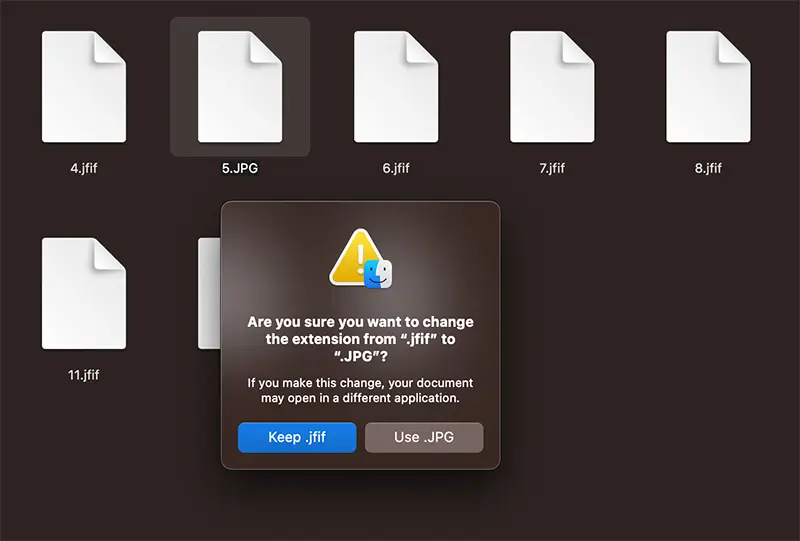
After changing the extension from .jfif in .jpg, the images begin to be visible in Finder and can be opened in the Preview, Photos or other graphic editing applications installed on Mac.
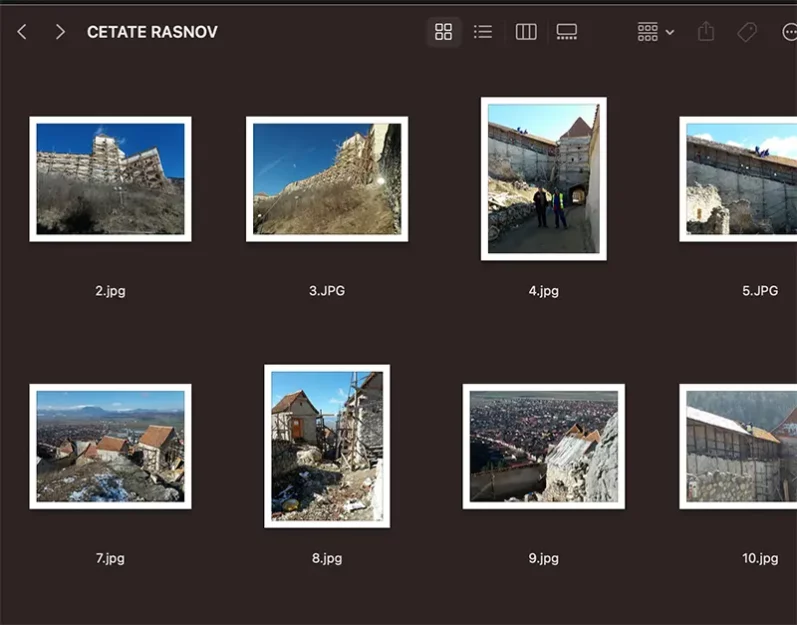
If you have several JFIF files for which you need to convert them in JPG format, it is best to use the command lines in the terminal.
How do you change the extension of several files through the command line in the terminal?
If you want to change the extension for the JFIF files in a folder, follow the steps below:
1. Open the terminal utility.
2. navigates in the folder in which the JFIF files are stored with the help of the order cd.
cd /path/folder_of_JFIF_files
3. Perform the command line by which you change the extension of all JFIF files to JPG:
for file in *.jfif; do mv "$file" "${file%.jfif}.jpg"; done
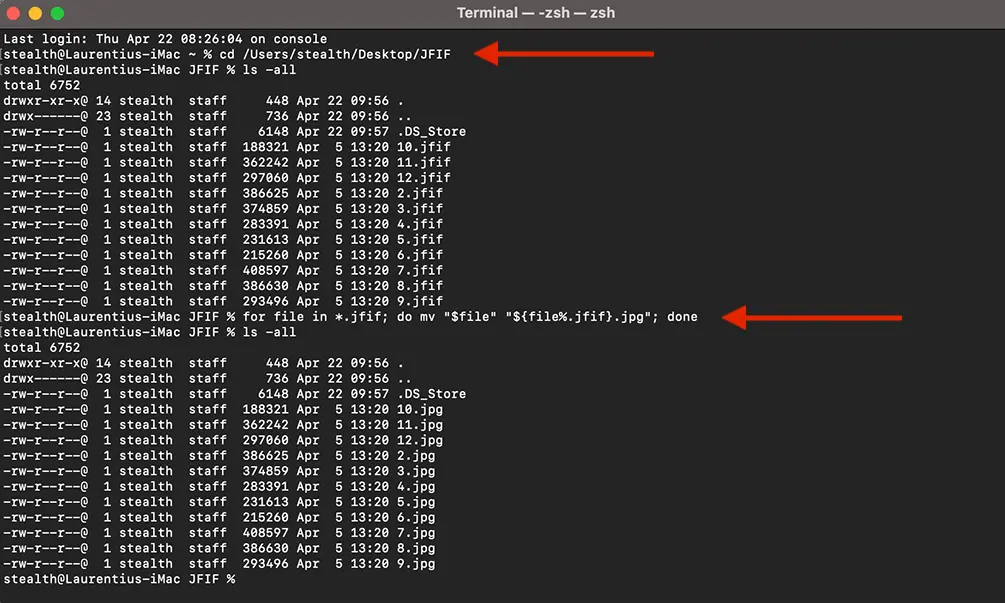
After executing the order line, all files with extension .jfif will be changed with the extension .jpg and will be able to be opened in any preview or photo editing application installed on Mac.
Related: How can you change the format of photos from Heic to JPG on the iPhone?
In conclusion, the JFIF files are essentially JPEG images and can be opened with most of the MAC images viewing and editing applications. If you encounter problems, a solution could be the extension change, from .jfif in .jpg. However, it is recommended that before this extension change you will back up JFIF files.

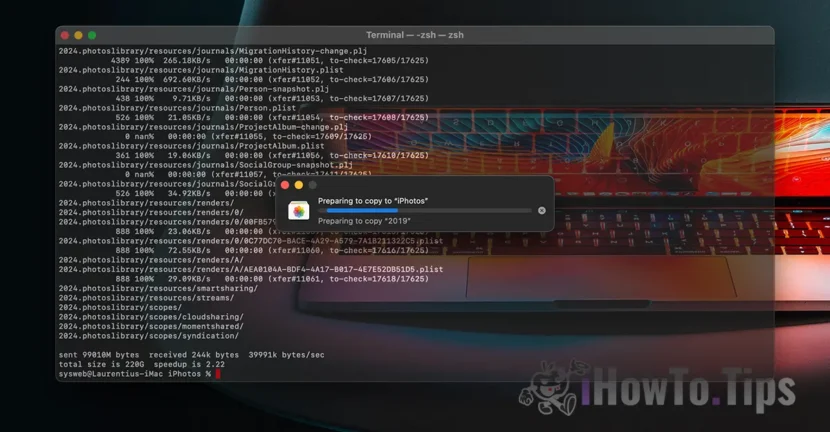
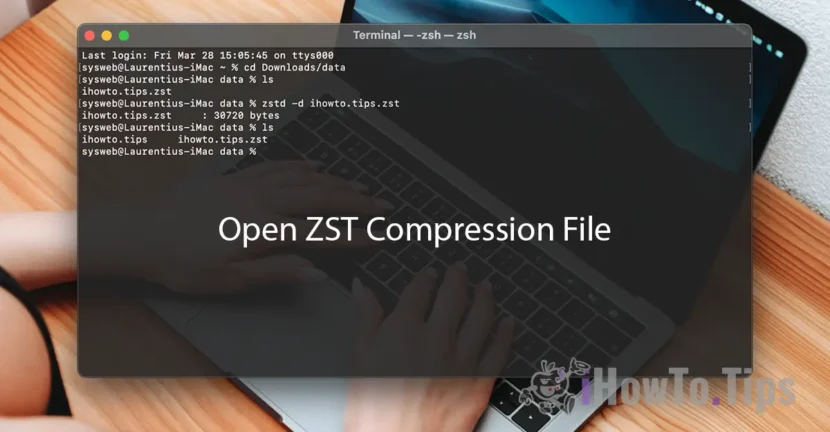
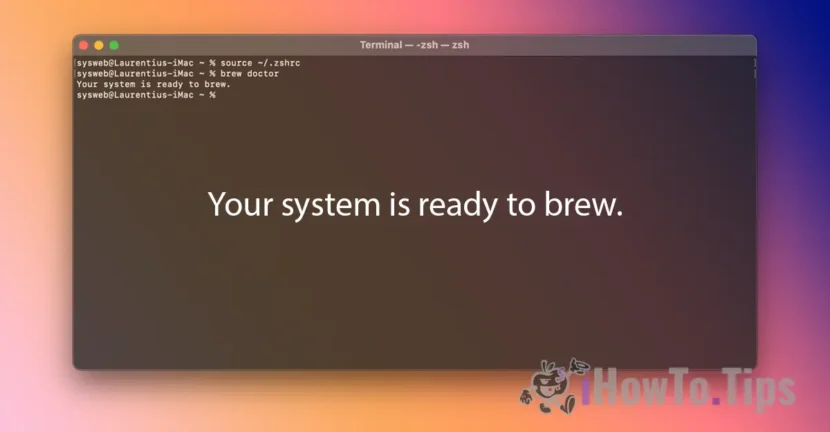

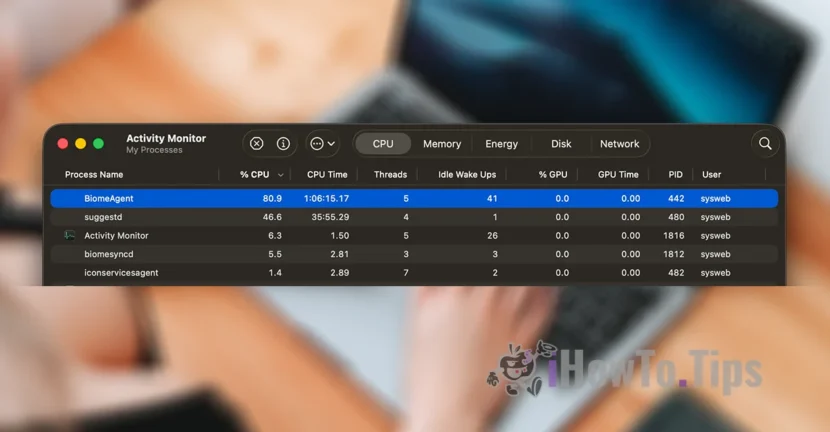
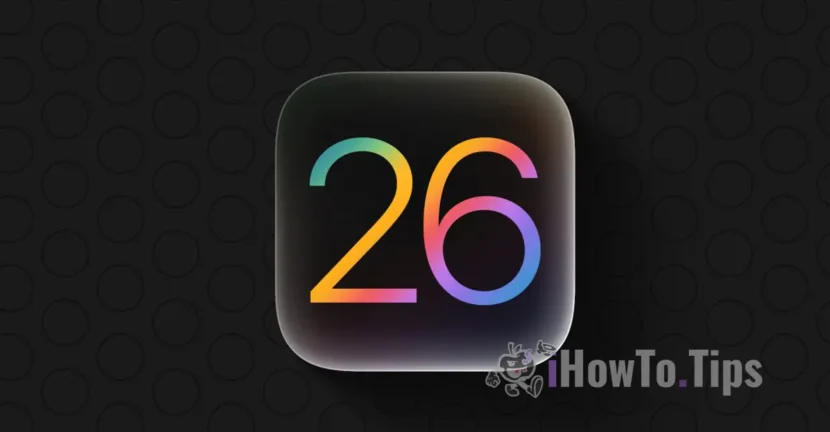

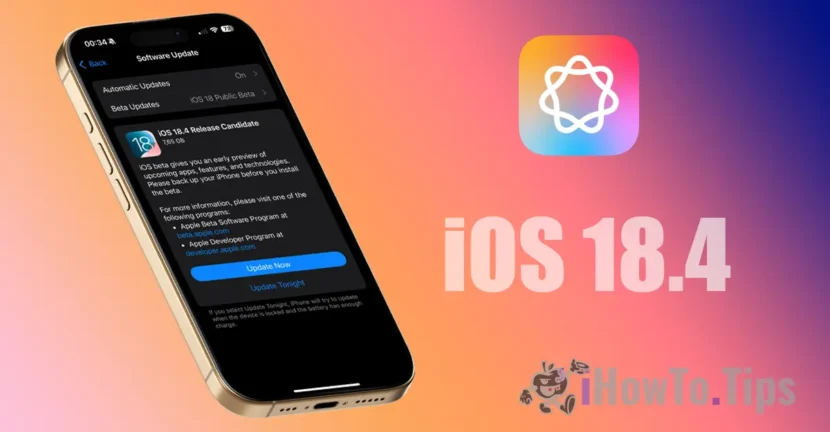

Dude that simpler and most effective alternative, I downloaded several apps to read the .jfif format and none had this conclusion. Thanks for the help
This was a life saver. Thanks a lot